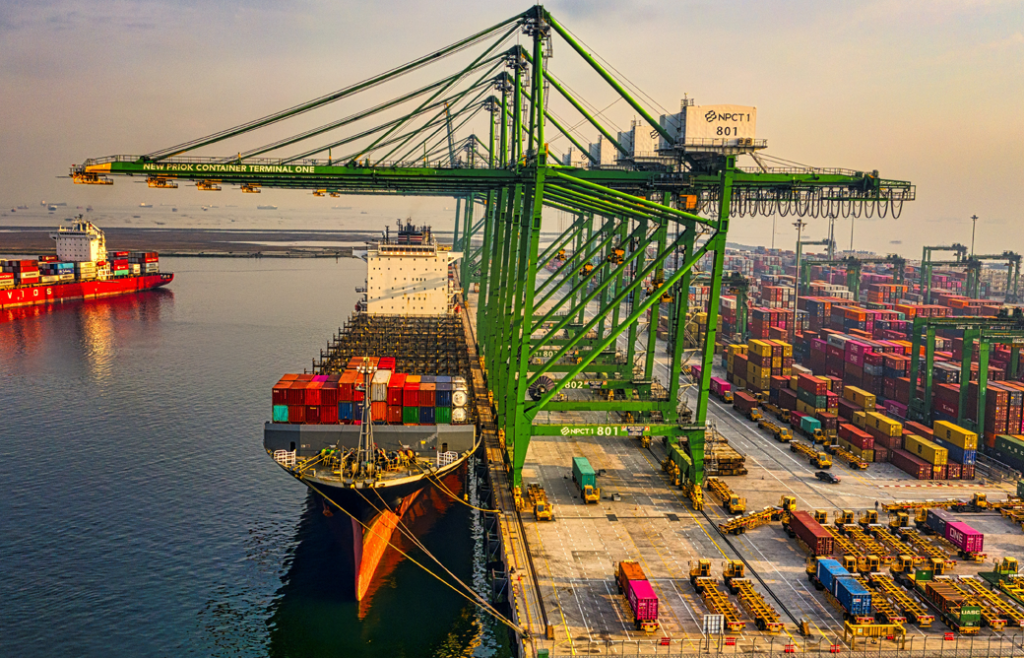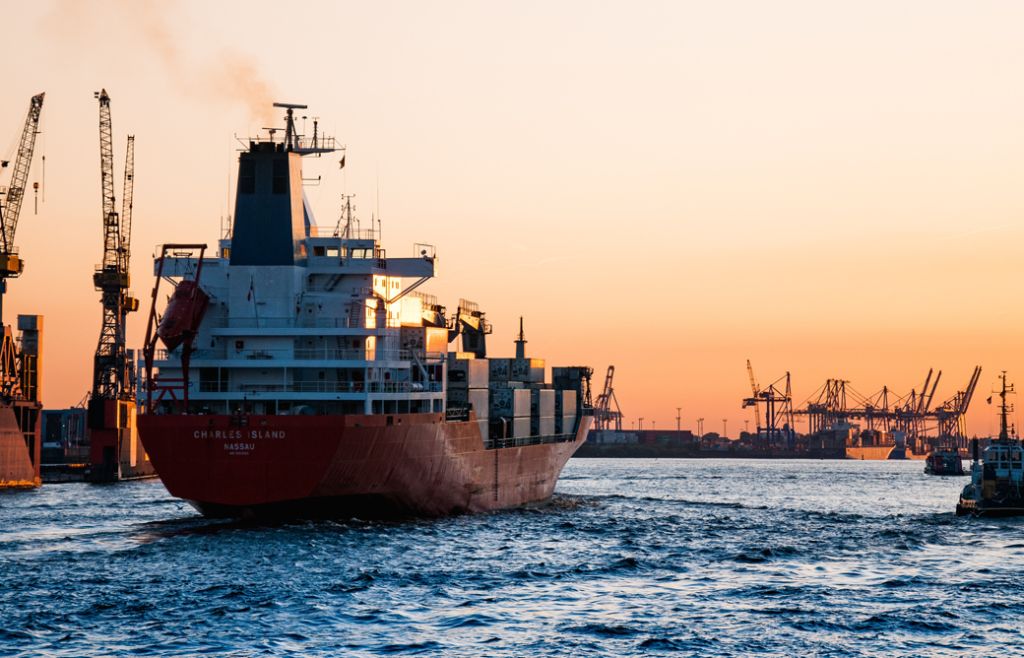
Discover the top 15 best freight forwarders in Nigeria. Get reliable air, sea, and road transportation, customs clearance and warehousing services.
When it comes to transporting goods, there are two main options: air freight and sea freight. Air freight is generally faster and more expensive, while sea freight is slower but less expensive. Both modes of transportation have their pros and cons, and which one you choose will depend on your needs and budget.
But before we dive into the best freight forwarders in Nigeria, let’s first define what freight is and what a freight forwarder does.
Freight refers to the goods that are transported from one place to another. It can be anything from raw materials to finished products, and it can be transported by land, air, or sea. Freight is an essential part of global trade, and it’s what keeps the global economy moving.
A freight forwarder is a company that arranges the transportation of goods from one place to another. They act as a middleman between the shipper (the person or company sending the goods) and the carrier (the company that physically transports the goods). Freight forwarders handle all the logistics of the shipment, including documentation, customs clearance, and insurance.
Now that we have a better understanding of what freight is and what a freight forwarder does, let’s take a look at the 15 best freight forwarders in Nigeria.
| Freight Forwarder | Description | Website |
|---|---|---|
| Bollore Transport and Logistics | One of the largest freight forwarders in Nigeria, offering air, sea, and road transportation, as well as customs clearance services. | https://www.bollore-logistics.com/ |
| DHL Global Forwarding | A well-known logistics company offering air, sea, road, and rail transportation services, as well as customs brokerage. | https://www.logistics.dhl/ng-en/home.html |
| Sifax Group | A Nigerian logistics company offering air, sea, and road transportation, as well as warehousing services. | https://sifaxgroup.com/ |
| UPS Supply Chain Solutions | A global logistics company offering air, sea, road transportation, and customs brokerage services. | https://www.ups.com/ng/en/services/international-trade/supply-chain.page |
| Maersk Nigeria Limited | A subsidiary of Maersk Group, offering sea freight and inland transportation services in Nigeria. | https://www.maersk.com/local-information/africa/nigeria |
| CHI Logistics | A Nigerian logistics company offering air, sea, road transportation, and customs clearance services. | https://www.chilogisticsng.com/ |
| MSC Mediterranean Shipping Company | One of the world’s largest shipping companies, offering sea freight services in Nigeria. | https://www.msc.com/nga |
| Agility Logistics | A global logistics company offering air, sea, road transportation, and warehousing services. | https://www.agility.com/locations/africa/nigeria/ |
| CMA CGM Nigeria Shipping Limited | A subsidiary of CMA CGM Group, offering sea freight services in Nigeria. | https://www.cma-cgm.com/local/nigeria |
| Red Star Express Plc | A Nigerian logistics company offering air, sea, road transportation, and warehousing services. | https://www.redstarplc.com/ |
| Grimaldi Agency Nigeria Limited | A Nigerian logistics company offering sea freight and inland transportation services. | https://www.grimaldi.nigeria.com/ |
| BHN Logistics | A Nigerian logistics company offering air, sea, road transportation, and customs clearance services. | https://bhnlogistics.com/ |
| PIL Nigeria Limited | A subsidiary of Pacific International Lines (PIL), offering sea freight services in Nigeria. | https://www.pilnigeria.com/ |
| Ekeson Logistics | A Nigerian logistics company offering air, sea, road transportation, and warehousing services. | https://ekesonlogistics.com/ |
| Fortune Global Shipping and Logistics Limited | A Nigerian logistics company offering air, sea, and road transportation, as well as customs clearance services. | https://www.fortuneglobalshipping.com/ |
| MDS Cargo Limited | A Nigerian freight forwarding company providing air, sea, and road transportation, as well as customs brokerage and warehousing services. | https://www.mdscargo.com/ |

| Factor | Description |
|---|---|
| Experience | A company’s experience in the freight forwarding industry is a crucial factor to consider. A well-established company that has been in the business for many years is more likely to have a solid network of carriers and be able to offer a wide range of services. |
| Services Offered | Before choosing a freight forwarding company, it’s important to determine what services they offer. Do they specialize in air freight, sea freight, or both? Do they offer customs clearance and warehousing services? Make sure the company you choose can meet your specific shipping needs. |
| Reputation | A company’s reputation in the industry is a reflection of the quality of their services. Look for reviews and testimonials from other customers to get an idea of their experience with the company. You can also check with industry associations and regulatory bodies to ensure that the company is in good standing. |
| Customer Service | When dealing with freight forwarding companies, good customer service is crucial. Look for a company that is responsive and easy to communicate with. Do they offer tracking and visibility of your shipment? Will they provide regular updates on the status of your shipment? These are important questions to consider. |
| Cost | Of course, cost is always a consideration when choosing a freight forwarding company. However, it’s important to balance cost with the quality of service offered. A company that offers rock-bottom prices may not necessarily provide the best service. Look for a company that offers competitive pricing without compromising on quality. |
| Technology | The freight forwarding industry is becoming increasingly reliant on technology. Look for a company that uses the latest software and systems to manage and track shipments. This can help to ensure greater accuracy and efficiency in the shipping process. |
| Insurance | Accidents and damage can occur during shipping, so it’s important to ensure that your shipment is fully insured. Look for a company that offers comprehensive insurance coverage for your shipment. |
| Compliance | Freight forwarding companies must comply with a range of regulations and standards. Look for a company that is fully compliant with all relevant regulations and has a strong commitment to safety and environmental sustainability. |
| Geographic Coverage | If you need to ship goods to a specific location, it’s important to choose a company that has the necessary geographic coverage. Look for a company that has a strong network of partners and carriers in the regions you need to ship to. |
| Track Record | Finally, consider a company’s track record in handling shipments similar to yours. Have they successfully handled shipments of similar size, weight, and value? This can give you confidence that they have the expertise and experience to handle your shipment. |
| Challenge | Description |
|---|---|
| Infrastructure | Poor infrastructure is a major challenge for the freight forwarding industry in Nigeria. Inadequate roads, ports, and airports make it difficult to move goods quickly and efficiently. |
| Customs Clearance | The customs clearance process in Nigeria can be slow and bureaucratic, leading to delays and extra costs for freight forwarders. Complex regulations and a lack of transparency can also make it difficult to comply with customs requirements. |
| Security | Cargo theft and hijacking are common problems in Nigeria, particularly on roads and highways. Freight forwarders must take extra precautions to ensure the safety and security of their shipments. |
| Political Instability | Political instability and insecurity can disrupt supply chains and make it difficult to move goods in and out of Nigeria. Civil unrest, terrorism, and other security challenges can also pose a risk to freight forwarders and their staff. |
| Competition | The freight forwarding industry in Nigeria is highly competitive, with many companies vying for business. This can lead to price pressures and a race to the bottom in terms of service quality. |
| Technology | The freight forwarding industry is becoming increasingly reliant on technology, but many companies in Nigeria struggle to keep up. A lack of investment in technology and training can lead to inefficiencies and errors in the shipping process. |
| Corruption | Corruption is a pervasive problem in Nigeria and can affect the freight forwarding industry in a number of ways. Bribes and other illicit payments can add to the cost of doing business, while corrupt officials can cause delays and other problems. |
| Payment Issues | Payment issues are a common problem for freight forwarders in Nigeria. Late or non-payment by customers can create cash flow problems, while currency fluctuations can also affect profitability. |
| Regulations | Regulations and compliance requirements can be complex and constantly changing in Nigeria. Freight forwarders must stay up to date with the latest rules and regulations to avoid penalties and other issues. |
| Logistics | The logistics of moving goods in Nigeria can be challenging, particularly in remote or hard-to-reach areas. Freight forwarders must have strong logistics capabilities to ensure that goods are delivered on time and in good condition. |

| Difference | Description |
|---|---|
| Role | A freight forwarder acts as a middleman between the shipper and the carrier, while a carrier is responsible for physically transporting the goods. |
| Liability | A freight forwarder is not liable for loss or damage to the goods, but a carrier is. The carrier must have insurance to cover any losses or damages that occur during transportation. |
| Services | A freight forwarder offers a wide range of services beyond transportation, such as customs clearance and documentation, while a carrier focuses solely on transportation. |
| Contract | A freight forwarder usually signs a contract with the shipper, while a carrier signs a contract with the freight forwarder or the shipper. |
| Equipment | A carrier owns and operates the equipment used for transportation, such as ships or planes, while a freight forwarder does not. |
| Routing | A freight forwarder is responsible for determining the best route for the shipment, while a carrier follows the route specified by the freight forwarder or shipper. |
| Documentation | A freight forwarder handles all necessary documentation for the shipment, such as bills of lading and customs documents, while a carrier only deals with documentation related to transportation. |
| Communication | A freight forwarder serves as a point of contact between the shipper and the carrier, while a carrier may communicate directly with the shipper or their representative. |
| Fees | A freight forwarder charges a fee for their services, which is separate from the carrier’s transportation fees. The carrier’s fees are included in the freight forwarder’s overall quote. |
| Flexibility | A freight forwarder offers more flexibility in terms of shipping options and can work with multiple carriers to find the best solution for the shipper, while a carrier is limited to their own transportation services. |

Freight forwarding involves many different types of shipping methods, each with its own unique advantages and disadvantages. One popular option is Full Container Load (FCL) shipping, which is commonly used for sea freight.
FCL shipping means that an entire container is used to transport a single shipment. This is different from Less than Container Load (LCL) shipping, where multiple shipments are combined into a single container.
There are many benefits to using FCL shipping, including:
However, there are also some potential drawbacks to consider, such as:
Overall, FCL shipping can be a great option for businesses that need to transport large shipments of goods. To determine if it’s the right choice for your needs, consider the size and type of your shipment, as well as your budget and timeline. By weighing the pros and cons, you can make an informed decision that will help ensure the safe and timely delivery of your goods.
LCL (Less than Container Load) shipping is a popular option for businesses that need to transport smaller shipments of goods. Instead of having to wait to fill an entire container, LCL allows you to share the container with other shippers and split the cost, making it a more cost-effective solution.
However, LCL shipping also comes with its own set of challenges. Because your shipment will be combined with others, it may take longer to arrive at its destination due to the additional stops it has to make. This can also increase the risk of damage or loss during transit, as your goods will be handled multiple times.
To ensure that your LCL shipment arrives safely and on time, it’s important to work with a reliable and experienced freight forwarder. They will have the knowledge and expertise to help you navigate any potential challenges and ensure that your shipment is properly packed and documented for transit.
When choosing a freight forwarder for your LCL shipment, there are several factors to consider. Firstly, make sure that they have a strong network of carriers and agents in the countries you will be shipping to and from. This will help to ensure that your shipment can be efficiently consolidated and deconsolidated at the ports.
You should also ensure that the freight forwarder has experience handling LCL shipments, as this can be a complex process that requires careful planning and coordination. Look for a freight forwarder that can provide you with detailed tracking and communication throughout the shipping process, so that you always know where your shipment is and can anticipate any potential delays.
Finally, it’s important to consider the freight forwarder’s rates and fees. While you want to work with a reliable and experienced freight forwarder, you also need to ensure that their rates are competitive and that they are transparent about any additional fees or charges.
In summary, LCL shipping can be a cost-effective solution for businesses that need to transport smaller shipments of goods. However, it also comes with its own set of challenges, and it’s important to work with a reliable and experienced freight forwarder to ensure that your shipment arrives safely and on time. When choosing a freight forwarder for your LCL shipment, consider their network of carriers and agents, experience handling LCL shipments, tracking and communication capabilities, and rates and fees.
Choosing the best freight forwarder depends on your specific shipping needs and preferences. However, there are some factors to consider when selecting a freight forwarder, such as their experience in handling your type of cargo, their network of partners and carriers, their reputation and track record, and their customer service. To make an informed decision, it’s recommended to research and compare multiple freight forwarders, read reviews and testimonials, and ask for references. Some of the best freight forwarders in Nigeria include DHL Global Forwarding, Kuehne+Nagel, and Bollore Transport & Logistics.
The cost and reliability of shipping from the UK to Nigeria depend on several factors, such as the shipping mode, cargo type, volume, and destination in Nigeria. It’s recommended to research and compare multiple shipping companies and their rates, transit times, and services. Some of the shipping companies that offer services from the UK to Nigeria include Maersk, MSC, CMA CGM, and Hapag-Lloyd. It’s important to note that the cheapest option may not always be the most reliable or the most suitable for your specific needs.
Finding new customers in freight forwarding can be challenging, but there are several strategies you can use to attract and retain customers. Some effective ways to find new customers include networking at industry events, using social media and online platforms to showcase your services and expertise, partnering with complementary businesses and suppliers, offering competitive rates and customized solutions, providing excellent customer service, and leveraging referrals and word-of-mouth recommendations. It’s also important to continuously monitor the market and stay up-to-date with industry trends and regulations.
A freight broker and a freight forwarder are both intermediaries in the shipping industry, but they have different roles and responsibilities. A freight broker acts as a matchmaker between shippers and carriers, negotiating rates and facilitating transportation services, but they do not take possession of the cargo or handle logistics. On the other hand, a freight forwarder handles the entire logistics chain of a shipment, from pickup to delivery, including arranging transportation, customs clearance, and insurance. They take possession of the cargo and are responsible for ensuring it reaches its destination safely and efficiently.